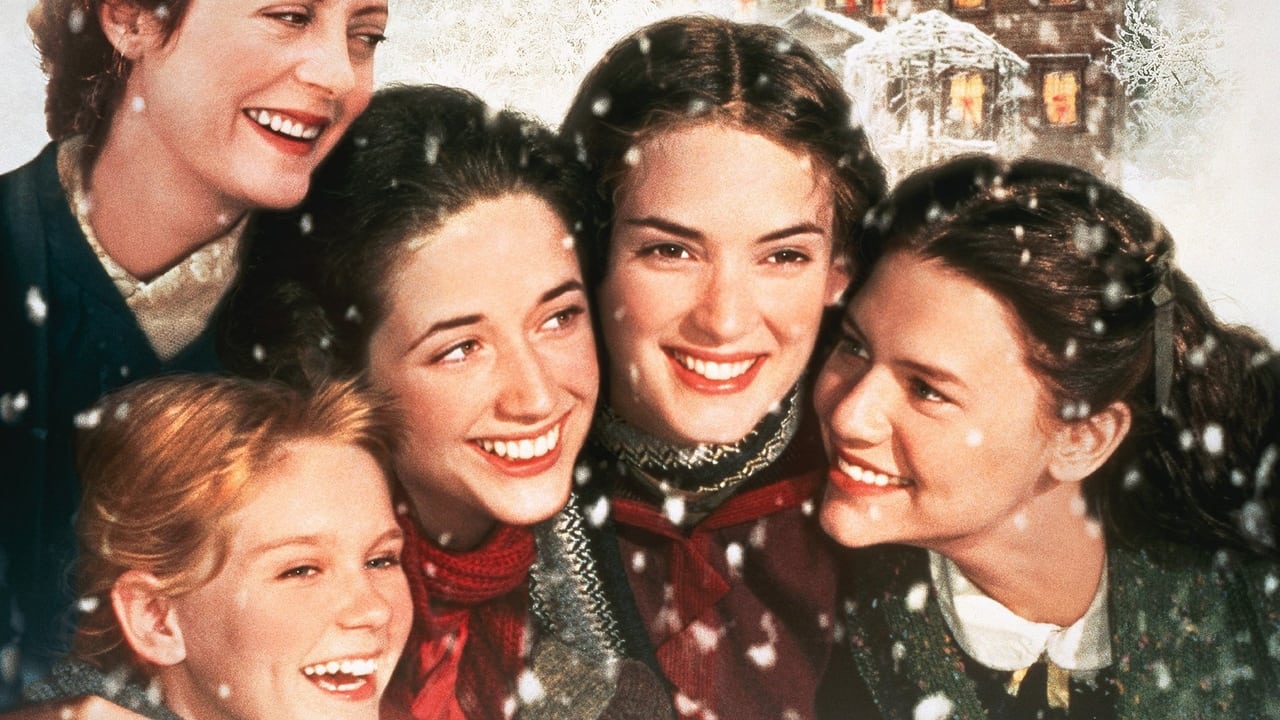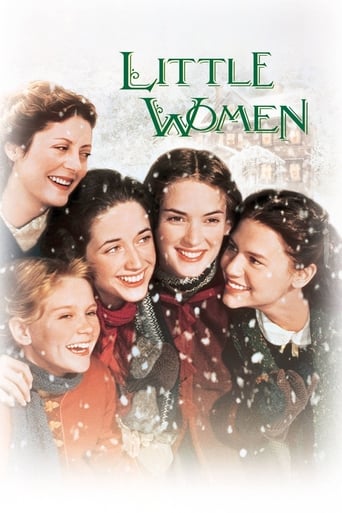

I had seen a few bits of this movie on TV recently so decided to get the DVD from my public library.The story is semi-autobiographical and in fact at the end Jo has published her book titled "Little Women". Winona Ryder is the lead character Jo March, one of four sisters. Their dad is still in the military in Civil War times, their mother, played by Susan Sarandon, runs the household.The oldest sister is Trini Alvarado as Meg March, 11-yr-old Kirsten Dunst is Amy March. Claire Danes , still a teenager, is Beth March. The neighbor friend is Christian Bale , about 19 or 20, as Laurie.It is an epic tale of sorts, the movie does justice to the book.
... View MoreWhen I bought my first VCR in the 1980's, the first movie I recorded off TV was the Katherine Hepburn version of of "Little Women." I recorded it to see if I could get the machine to work. It did and I found that the movie was excellent (I was stunned that I could fast forward through the commercials). So I have a warm place in my heart (I'm sure I saw the old one some other time as well) for this film. There have been some pretty good remakes before, but I find this contemporary one to be really good. With an all-star cast, an excellent screenplay, and a beautiful setting, this timeless book is brought to life. I know some people find it sentimental and maudlin, but it's a really fine portrayal of a time. Also, the characters are often talked about as goody-two-shoes. This is far from the truth. The girls have their own personalities and frequently clash in harsh and mean ways. The movie is unpredictable and true to the author. It doesn't follow a formula that it could have. See this if you have not.
... View MoreLittle WomenThe key to raising daughters is ensuring you find a nanny who lost a daughter of her own to raise them.However, the sisters in this drama will have to settle for their own mother's nurturing.Amid the turmoil of the Civil War, the March Sisters - Meg (Trini Alvarado), Jo (Winona Ryder), Beth (Claire Danes), and Amy (Kirsten Dunst/Samantha Mathis) - learn lessons in love from their many suitors (Eric Stoltz, Gabriel Byrne, Christian Bale).As Jo, Meg and Amy pursue their fancies, Beth remains at home with Marmee (Susan Sarandon).The sisters grow so distant that it takes a great loss to bring them back to Massachusetts.Although their lives unfold over years, this fifth and first-rate adaptation of the novel has a holiday spirit that rings throughout its family-centric plot-line.Incidentally, the highlight of the 19th century holiday season was always the annual ugly Christmas petticoat ball.Green Lightvidiotreviews.blogspot.ca
... View MoreI love rewatching things after not seeing them in a long time and just falling in love with it all over again. And that's what happened here with Little Women. I was a young girl myself when it came out in theaters and I enjoyed it then, though honestly I don't recall if I had ever read the book before then. I don't have any sisters so I don't know the true relationship between sisters but I imagine it's a lot like brothers and I have three of them so I could relate in many ways to the relationships between the four of them. I think that Jo and Laurie would have made a great couple, but Jo was right. Laurie needed someone more like Amy than herself. Jo and Laurie were too much alike. The combination of Laurie and Amy matched together similar to Jo and Fredrick.Amy was calm and Laurie outgoing and Fredrick was calm and Jo outgoing. I can't think of anyone I know who has seen this movie and not cried when Beth passes away. A scene that sticks in your mind even days after watching it. Cuddle up in a blanket with your popcorn and enjoy this wonderful film.
... View More